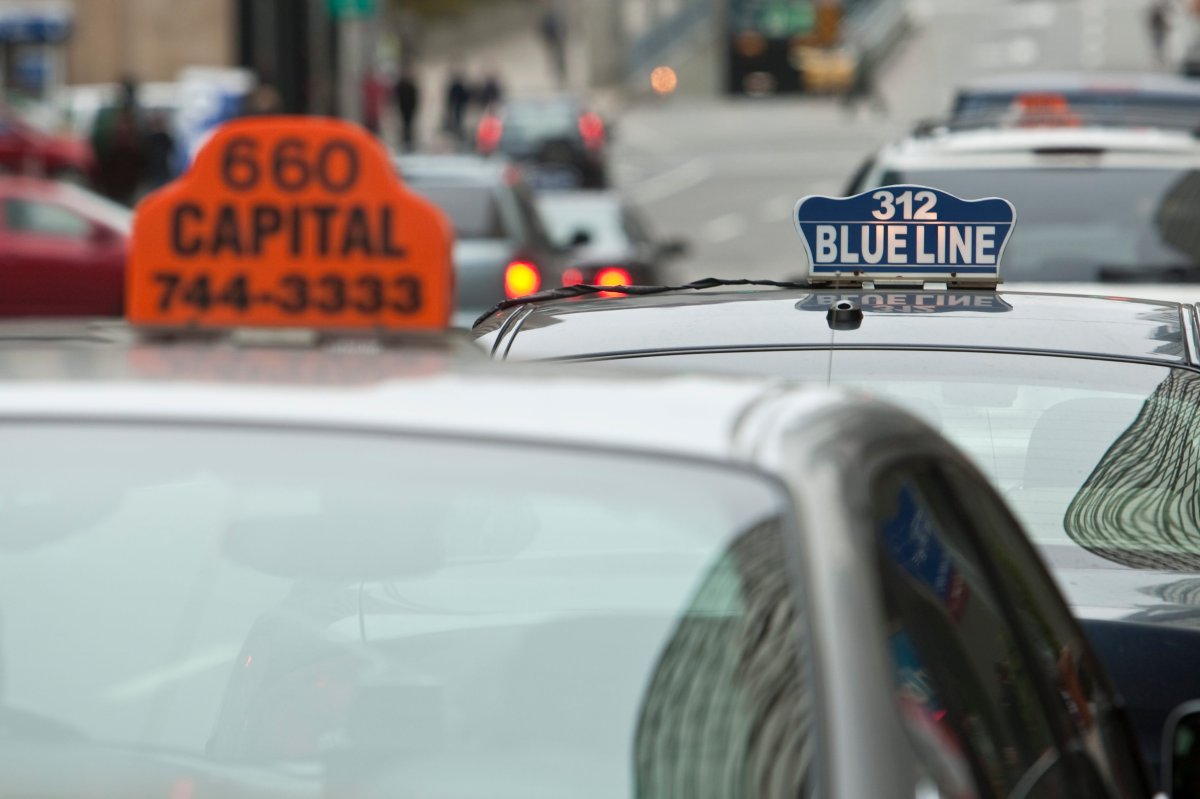A committee of city councillors unanimously endorsed a handful of tweaks to Ottawa’s three-year-old vehicle-for-hire bylaw on Thursday, including one that would allow the taxi industry to install new meter technologies that many cabbies argue would help them better compete against ride-hailing companies like Uber and Lyft.

The new “soft meters” would allow taxis to offer “flexible pricing” – up to a maximum fare – based on demand for rides ordered through an app. Discounted fares would be permitted, but not surge pricing, the community and protective services committee heard.

Ottawa’s vehicle-for-hire bylaw regulates all ride-ordering services, including taxis and private transportation companies, Uber and Lyft included. Its rules came into effect in the fall of 2016, following city council’s move to legalize Uber in Ottawa that spring. Coun. Eli El-Chantiry was the lone councillor who dissented in the heated decision that outraged taxi drivers across the city.
“Time and time again we heard: ‘We need to level the playing field, we need to level the playing field,'” El-Chantiry told reporters after the meeting.
The councillor said he heard that more and more large employers in town are moving away from traditional cab chits and there was consensus at the table that the bylaw should allow taxis to modernize their methods and levels of payment. The union supported the bylaw amendment he put forward at committee, El-Chantiry said.
The amendment still needs approval from city council, which is next scheduled to meet on Sept. 11. If and once it’s approved, the new soft meters would be installed within 30 days, according to Marc André Way, CEO of Coventry Connections, which dispatches Blue Line, Capital and West-Way cabs in Ottawa.
“We want to be ready for the Christmas season,” he told reporters.
Way said the app the taxis would install would replicate Uber to a degree – allowing riders to track their driver, pay through the app, and tip in advance. Riders would have the option to pay cash or by credit card, he said.
“The app gives you multiple choices and multiple options.”
Not all taxi drivers want the new meters, however, which are tablet-based. Speaking to the committee on Thursday, a couple drivers expressed concerns about being monitored through the new tablets or having them shut down by their employer.
“We’ve never done that. So that’s smoke and mirrors,” Way said when asked about those drivers’ presentations. “We’ve never been unfair to our drivers. And second of all, we’re bound by collective agreements … our rights are very, very well laid out.
“That is not something that we could do.”
Taxi driver Walid Skaff told the committee he prefers the old-fashioned wired meters, referencing the old adage: ‘If it’s not broke, don’t fix it.’
“If we would follow that philosophy, we’d still be using horses and carriage, so it’s time to change,” Way told reporters, claiming the majority of taxi drivers want the soft meters. “Cars have improved, technologies have improved.”
Way said the bylaw amendment would allow the industry “to use any type of new technology, whether it’s a brand new hard meter or whether it’s a tablet” – but he said Coventry favours the tablet meter.
He told reporters his company is still exploring how exactly the discounted fares would work.
The committee on Thursday also supported three other tweaks to the vehicle-for-hire bylaw proposed in a motion tabled by Coun. Keith Egli:
- reducing the number of annual taxicab inspections from two to one, for all cabs;
- allowing drivers to remove their taxi identification number from the side of their cab when it’s not in service; and
- increasing the fee charged to customers who cause a cab to be taken out of service for cleaning from $50 to $150.
All the modifications were supported by staff in the city’s emergency and protective services, who favoured “minor amendments” to the vehicle-for-hire bylaw rather than an extensive review of the regulations.
Little support for full review of vehicle-for-hire bylaw
Staff are gearing up for the city’s 2019-2022 bylaw review and sought approval for their work plan from the committee on Thursday. The work plan – which includes a review of the city’s trees bylaws, its special events permit system, the vacant building strategy, and a review of tow truck regulations.
Some council members had raised whether the vehicle-for-hire bylaw should be included on the work plan, but staff felt that wasn’t necessary at this point in time.
“Staff’s overall assessment of the by-law continues to be that the regulatory model approved in 2016 for taxis, private transportation companies and limousines is meeting Council’s goals,” staff wrote in a report submitted to the committee.

Despite this, Coun. Shawn Menard on Thursday tried to get the bylaw on the list for a comprehensive review through a separate motion, arguing “the current model creates regulatory inequities among the various vehicle-for-hire providers.”
Anthony Di Monte, general manager of emergency and protective services, said such a review would be resource-intensive and suggested some of the immediate issues were resolved with the minor amendments in El-Chantiry’s and Egli’s motions.
“The bylaw is kind of finding its way,” Di Monte told councillors, saying staff think it’s “too early” to determine whether the bylaw has or hasn’t been a success.
Several councillors, including Egli and Diane Deans, argued the bylaw is not outdated and is working in the community’s and consumers’ interests.
Menard ultimately withdrew his motion.
Councillors, however, did support another motion tabled by Coun. Matt Luloff that proposed studying what’s behind a lack of availability of accessible cabs and some possible solutions.




Comments